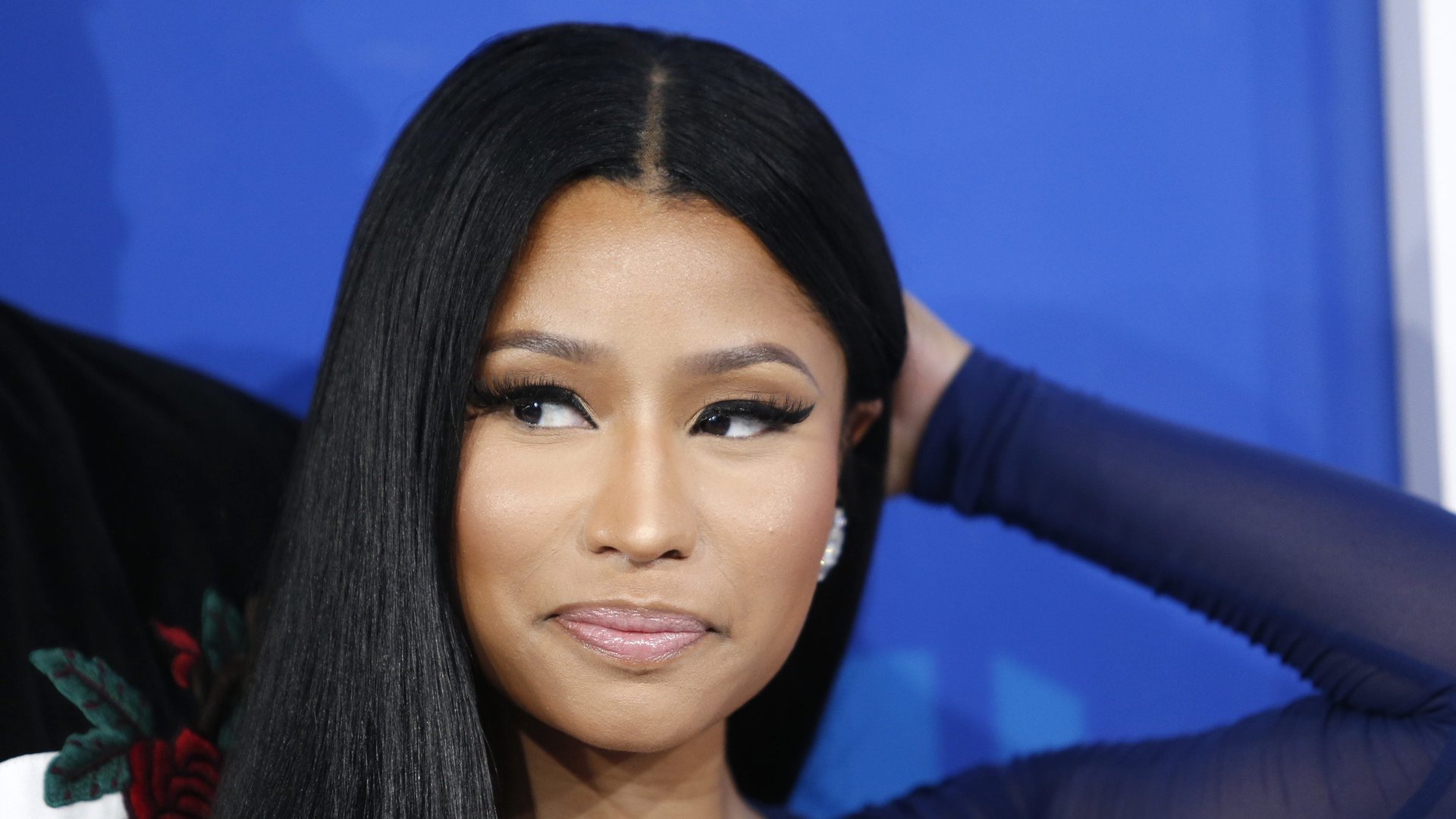Boris Johnson was no match for Nicki Minaj in an online spat about vaccine misinformation
UK government officials somehow found themselves in the crosshairs of US rapper Nicki Minaj on Sept. 14, when they tried to push back on misleading comments she made on Twitter about Covid-19 vaccines.


UK government officials somehow found themselves in the crosshairs of US rapper Nicki Minaj on Sept. 14, when they tried to push back on misleading comments she made on Twitter about Covid-19 vaccines.
The music star, who has more than 22 million followers on the platform, posted a day earlier about a cousin who had not yet gotten the vaccine due to fears that it would make him impotent. Earlier, Minaj had suggested she was not yet vaccinated, and would only do so when she had “done enough research.”
Minaj’s tweets drew backlash from medical professionals online who pointed out there is no scientific evidence that Covid-19 vaccines cause impotence or testicular swelling. While the coronavirus itself may cause male infertility and sexual dysfunction, according to recent research by urologists at the University of Miami, the vaccines that protect against it do not.
Asked about Minaj’s tweets during a news conference, professor Chris Whitty, England’s chief medical officer, said that Minaj “should be ashamed” of spreading such misinformation. “There are a number of myths that fly around,” he said. “Some of which are just clearly ridiculous, and some of which are clearly designed just to scare.”
Prime minister Boris Johnson said that he wasn’t as familiar with Minaj’s work as he should be. “But I am familiar with Nikki Kanani,” Johnson continued, referring to the medical director of primary care for England’s National Health Service. Kanani, the prime minister said, “will tell you vaccines are wonderful and everyone should get them.”
There is ample evidence at this point in the pandemic that the risks of not getting vaccinated against Covid-19 far outweigh the potential side effects of the jab. But slightly hapless UK officials’ attempts to push back on Minaj highlight the challenges of countering potentially harmful misinformation while being trolled by an influential celebrity.
Within a few hours of the news conference Minaj had accused Whitty on Twitter of dissing her, and released a recording of herself mocking Johnson in a fake British accent.
The message to Johnson was retweeted more than 15,000 times, dwarfing the prime minister’s own message promoting vaccines that day, which received just 64 retweets.
The UK was not only up against a powerful celebrity in the Minaj spat, but also declining public trust overall. Confidence in national governments to effectively deal with the coronavirus declined across nations over the last year, according to IPSOS polling, with the US and UK seeing some of the steepest declines.
The White House on Sept. 16 offered to connect Minaj with a Biden administration doctor to answer her questions about the safety and efficacy of the vaccine, according to CNN.
A number of celebrities in the US—such as Gen Z pop star Olivia Rodrigo, actor Eva Longoria, and film director Spike Lee—have been recruited to encourage Americans to get the vaccine in recent months. But a Morning Consult poll released in May found that a majority of US adults are unmoved by this outreach.
While the potential for celebrities to have a positive impact when it comes to coronavirus messaging is limited, New York Times reporter Sheera Frenkel pointed out that tweets like Minaj’s can quickly reverse efforts to educate the public.